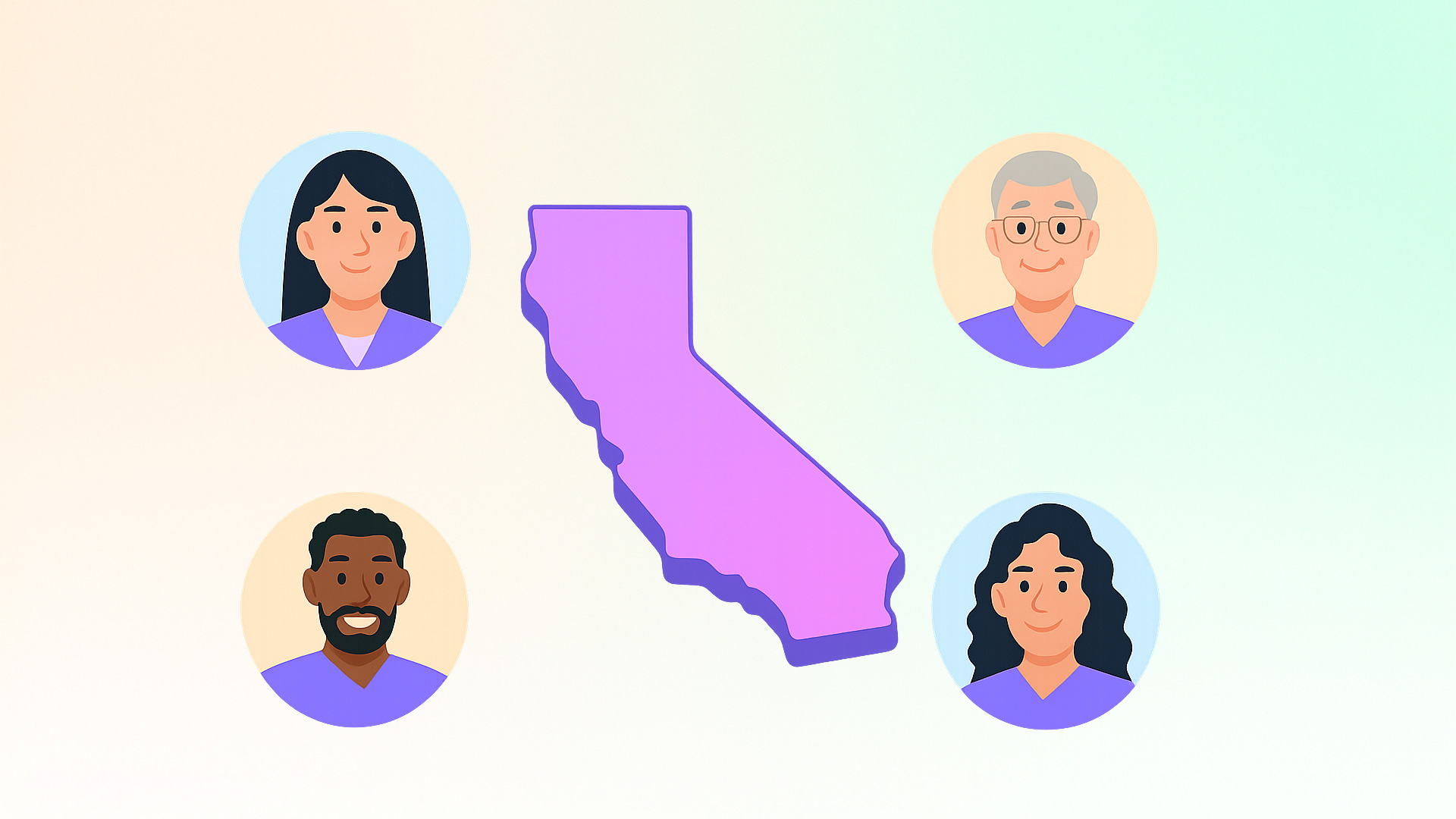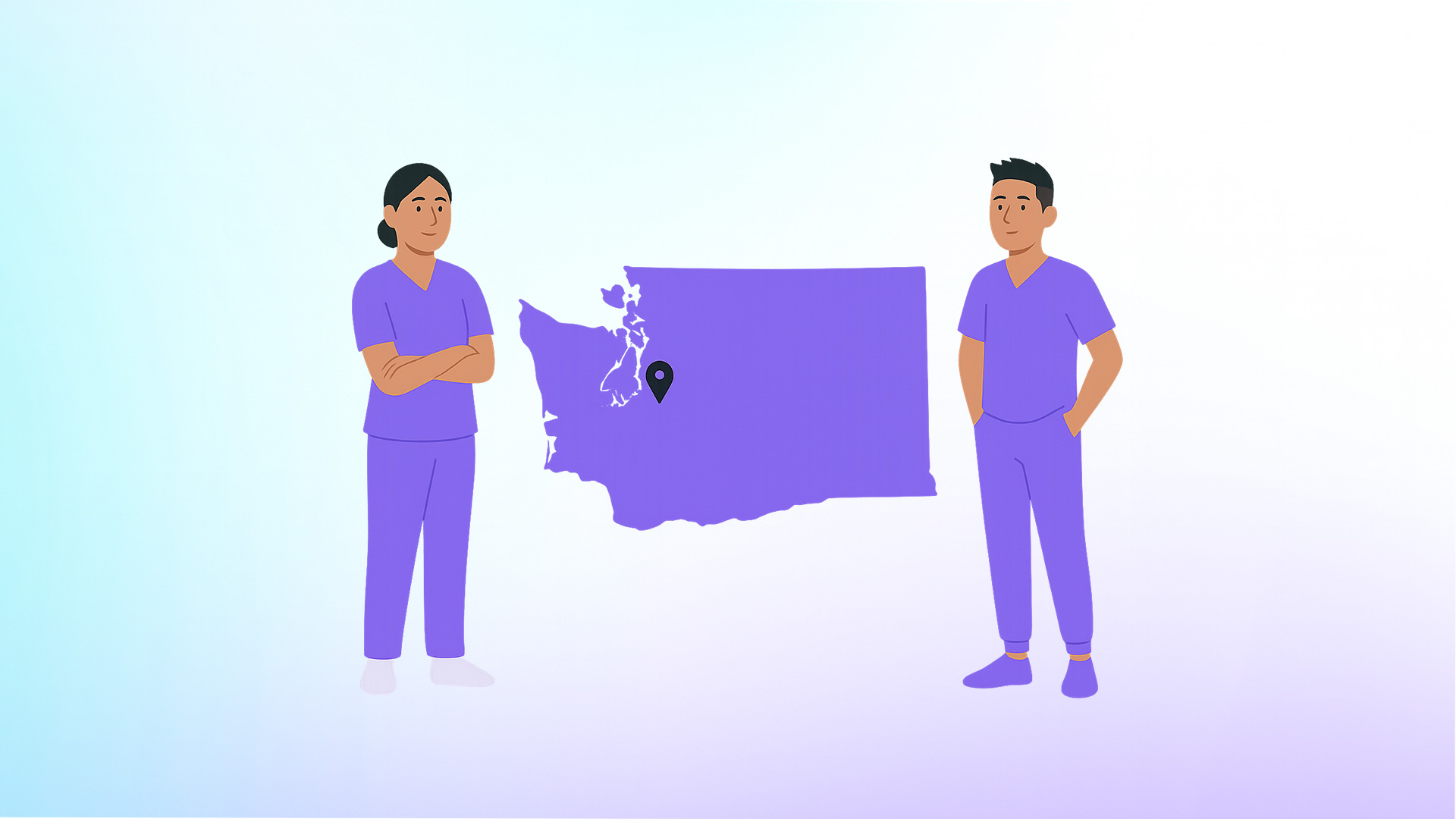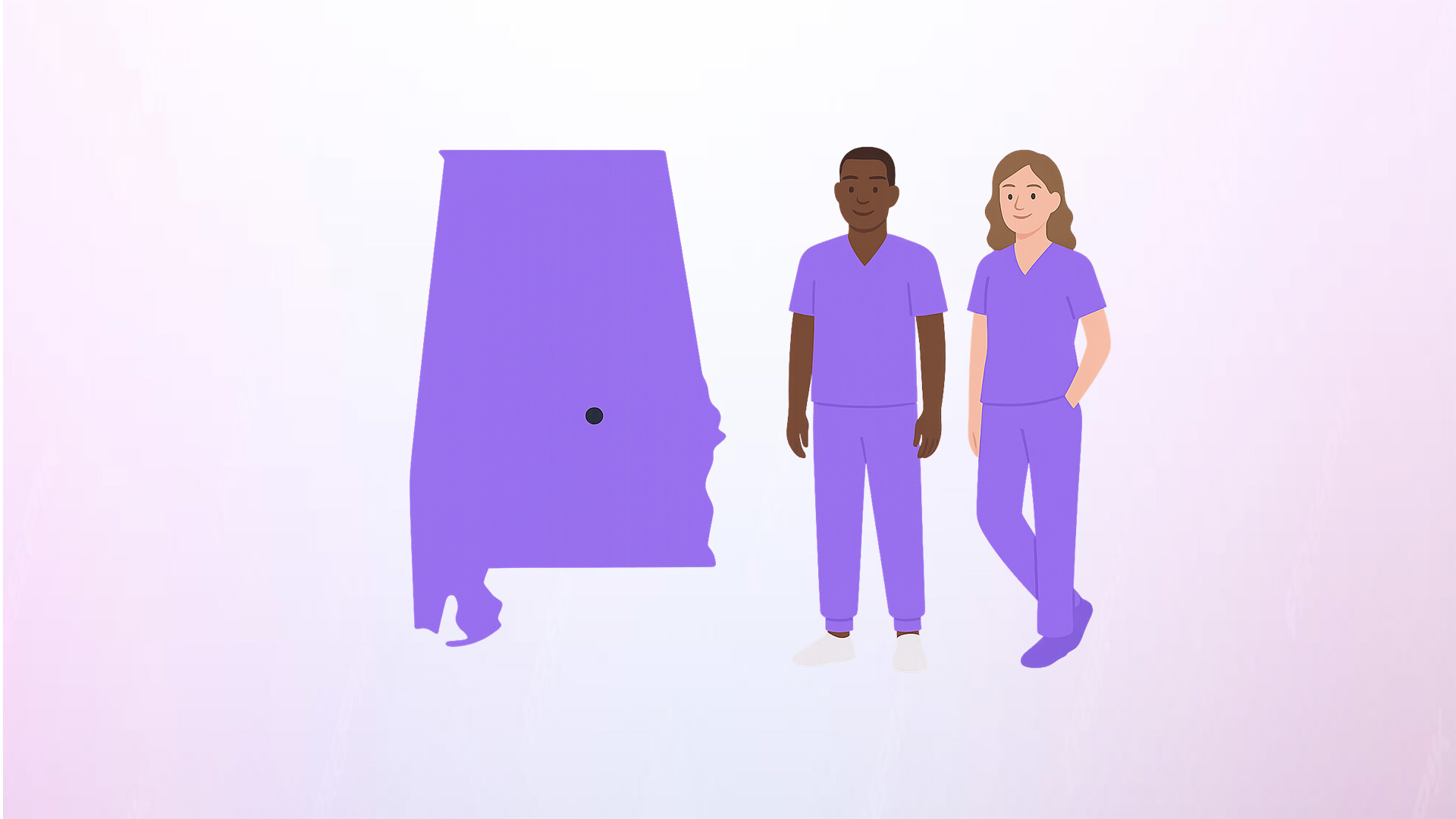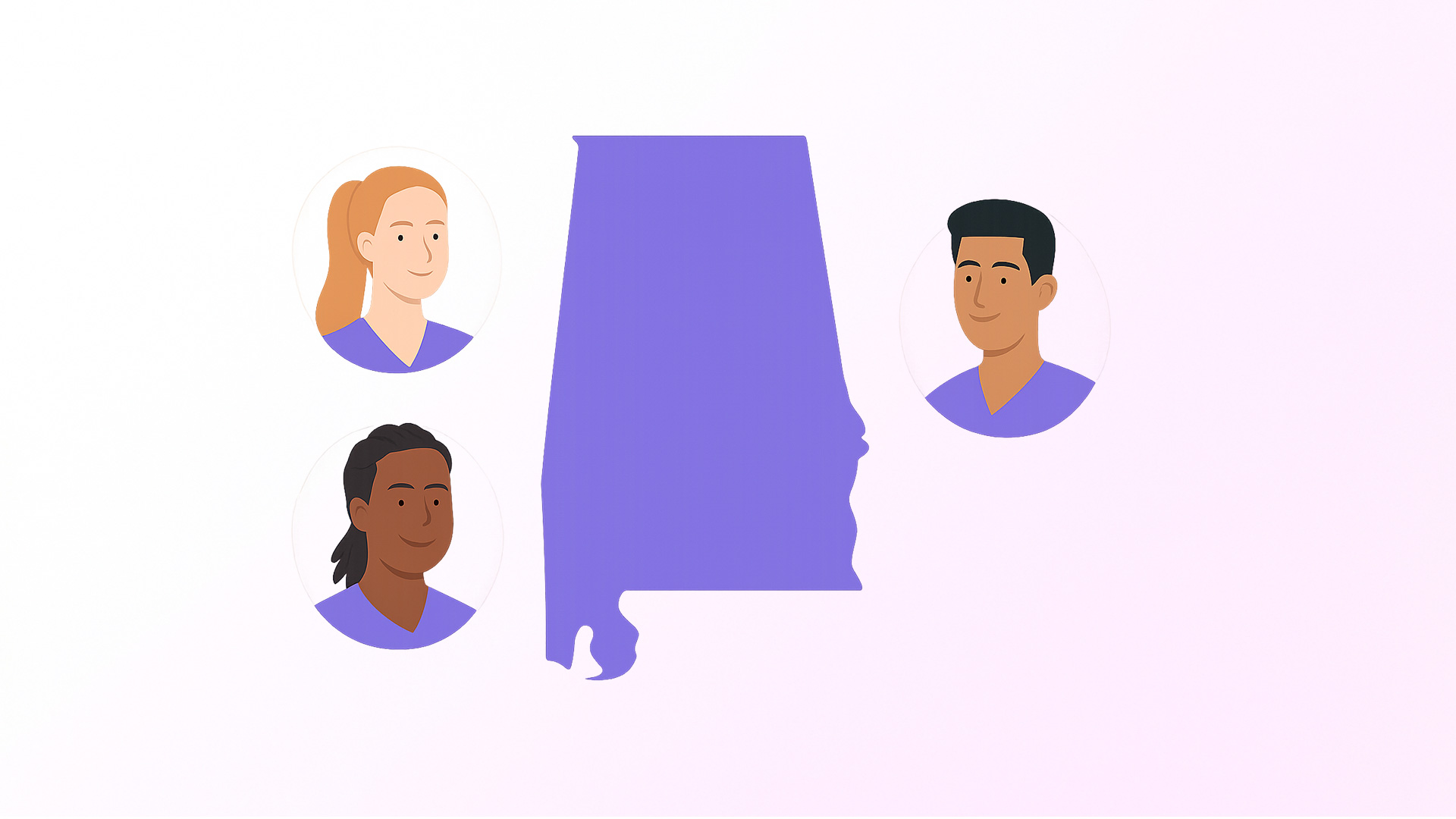Family Nurse Practitioner jobs in San Diego are highly sought-after but fiercely competitive. To land a dream position in America’s Finest City, nurse practitioners must blend advanced practice nursing skills with a sharp understanding of the local healthcare landscape—balancing credentialing demands, cost-of-living pressures, and system expectations.
TL;DR – Family Nurse Practitioner Jobs San Diego
- The market is saturated and selective. Even entry-level roles often require 2–3 years of NP experience, making strategic positioning and networking essential.
- The pay is strong—but so are the expenses. Average salaries range from $138K–$146K, but rent, gas, and loan repayment can shrink your real take-home.
- San Diego health systems want more than credentials. Employers are looking for impact, adaptability, and real-world clinical application—not just degrees.
- Local experience matters. Completing your clinical rotation in San Diego can give you a major edge with hiring teams.
- Success here takes more than a strong resume. Targeted applications, personal outreach, and a deep understanding of local healthcare priorities can significantly improve your chances.
The Reality of Landing an FNP Role in San Diego
San Diego isn’t short on Family Nurse Practitioners. Between competitive nurse practitioner programs, strict credentialing standards set by the California Board and the American Nurses Credentialing Center, and saturated hiring pools, simply having the title “FNP” doesn’t guarantee interviews—let alone offers.
The reality is, this market favors preparation. Employers want nurse practitioners with not just clinical application skills, but working knowledge of patient care trends, health promotion priorities, and primary care needs specific to California communities.
If you're serious about practicing independently, shaping health policy, or stepping into leadership roles, your approach needs to reflect more than academic success—it needs to signal impact, adaptability, and readiness to solve problems in complex health systems.
This guide breaks down the real expectations, the systems hiring, the roles in demand, and how to avoid the pitfalls that slow down even the most qualified FNPs.
Market Snapshot: What the 2025 San Diego FNP Scene Really Looks Like
San Diego’s demand for Family Nurse Practitioners is strong but it’s matched by the sheer number of qualified candidates applying for limited roles. Health systems like UC San Diego Health, Scripps Health, and Sharp HealthCare frequently post FNP openings, but many come with steep experience requirements and highly specific credentialing demands.
Most listings request 2–3 years of NP or acute care experience, even for outpatient or community-focused roles. Employers are screening for proven advanced practice nursing competencies, not just a title. Applicants without direct post-certification experience often find their resumes overlooked even if they’ve completed an MSN-FNP program with honors.
Key Insights from the Field:
- Care Settings: According to sources like Indeed Openings include urgent care, OB/GYN, oncology infusion, trauma, and mobile health units. UCSD roles in trauma and infectious disease, for example, list compensation between $177K–$250K/year, while urgent care FNPs often start between $67–$90/hour.
- Experience Requirements: A review of postings on UCSD’s and Sharp’s job portals confirms that many San Diego employers won’t consider applicants without prior licensed NP experience, even in traditionally “new grad–friendly” environments like primary care clinics.
- Licensing Delays: Credentialing through the California Board of Registered Nursing can take several weeks to months, especially when combined with onboarding delays from large systems. This often pushes start dates even further for candidates unaware of the bottleneck.
This doesn’t mean opportunity is out of reach, it means your strategy needs to be tighter. Knowing where to focus (trauma vs. telehealth, for instance), which employers align with your clinical experience, and what the credentialing timeline looks like can be the difference between months of silence and a job offer.
Salary vs. Cost of Living: What FNPs Really Make in San Diego
At first glance, Family Nurse Practitioners in San Diego seem to have it made. The salary is higher than the national average, job titles are abundant, and employers include some of the most respected health systems in the state. But dig a little deeper, and the story becomes more complex.
The average base salary for a Family Nurse Practitioner in San Diego is $140,655 per year, with average overtime pay adding $20,625 annually. Also, similar reports place the median annual salary at $151,730 per year.
That’s approximately 11–15% above the national median for nurse practitioners. For experienced FNPs with specialized skills in trauma, infectious disease, or infusion therapy, the numbers can climb even higher.
Some listings from UC San Diego Health and Sharp HealthCare show total compensation packages north of $200K/year for high-demand roles.
So what’s the catch?
San Diego’s cost of living is one of the highest in the country. For FNPs, especially those entering independent practice or coming out of an MSN or DNP program with loan debt, it’s critical to understand how far that “high” salary will actually go.
Real-World Considerations:
Average rent for a one-bedroom apartment
Even with a solid salary, rent in San Diego will eat up 30–40% of your income, especially if you live near clinical sites. For FNPs working long hours or variable shifts, proximity to work can significantly impact burnout, sleep, and job satisfaction—but it comes at a premium.
Gas prices in San Diego
If you're driving between multiple clinics or taking assignments across the county, this adds up quickly. Mobile health NPs and those working in underserved areas often absorb these costs themselves, with limited mileage reimbursement. Plus, you’ll need to factor in tolls, parking, and vehicle maintenance.
Student loan repayment and health insurance premiums
Many FNPs leave their program with $60,000–$120,000 in debt from a master’s or doctoral degree. Unless you land a position at a nonprofit that qualifies for Public Service Loan Forgiveness—or an employer that offers loan repayment—you’ll be covering these costs yourself. In addition, health insurance plans offered through some outpatient clinics or urgent care settings may not fully cover dependents or specialty care.
Cost of groceries, utilities, and lifestyle expenses
Groceries cost about 15–20% more than the national average. Electricity and water rates can fluctuate seasonally, especially if you're renting. And while San Diego offers plenty of free outdoor perks, things like continuing education, certification renewals, and licensing fees aren't free. These professional expenses—required for maintaining advanced practice nursing status—often go under budgeted.
San Diego salaries for Family Nurse Practitioners look great on job listings but once you add in basic living expenses, debt repayment, and professional overhead, the margins shrink. The smartest FNPs aren’t just negotiating their salaries, they're reviewing benefits, comparing healthcare coverage, and asking about continuing education stipends and licensing fee reimbursements.
This isn’t about discouraging you. It’s about approaching your job search like a professional, not just a clinician. And that means treating compensation like more than just a number on a contract.
Hidden Hurdles in the Job Search for FNPs in San Diego
Here’s what doesn’t get mentioned on job boards: in San Diego, the hardest part of landing an FNP role isn’t always your qualifications—it’s the hiring process itself.
Even with a solid nursing program behind you and certification from the American Nurses Credentialing Center, you might find yourself stuck in a cycle of unanswered applications and automated rejections.
Why? Because this market operates on a mix of formal requirements and informal expectations, understanding that gap is crucial if you want to move from applicant to hire.
Common Friction Points for San Diego-Based FNPs:
- Oversaturation of nurse practitioners in the region
San Diego is home to multiple nurse practitioner programs, from traditional MSN-FNP pathways to hybrid and online course models. That means dozens, if not hundreds, of new Family Nurse Practitioner graduates enter the market each year, all applying to a limited number of roles. - Experience inflation in job postings
Many FNP job listings in primary care settings or community clinics still require 2–3 years of NP experience, even when they’re labeled as “entry level.” For new grads, this can feel like a setup. Some postings will accept RN experience in place of NP time but only if it’s recent and directly related to advanced nursing practice. - Credentialing timelines slow everything down
Getting hired doesn’t mean you’re starting work right away. Between California Board of Registered Nursing processing, employer credentialing, and institutional onboarding, it can take 60–90 days (or longer) to actually start seeing patients. That delay can mess with your income, insurance coverage, and even your loan repayment timelines if you’re counting on employer benefits. - Hiring managers rely on local recommendations
Employers often favor candidates with direct clinical references from local sites. If you didn’t complete your FNP program clinical hours in San Diego, or you’re relocating, you may be at a disadvantage, even if your cumulative GPA and core courses are stellar. - Inconsistent communication from employers
Large health systems like Sharp or UCSD often use automated hiring portals. That means unless you’re flagged internally by a recruiter or preceptor, you might not hear anything back. Applicants report sending 15–20 applications before getting a single interview, not because they’re underqualified, but because their application never got in front of a decision-maker.
This part of the process is often the most discouraging. But it’s also where the right approach can set you apart. Understanding these hurdles ahead of time allows you to move smarter, adjusting your expectations, pacing your application strategy, and focusing your efforts where you have the best odds of success.
How to Stand Out in the San Diego FNP Market
Getting licensed is one thing. Getting noticed is another.
In a city where hundreds of qualified nurse practitioners are applying for the same jobs, the edge doesn’t come from being “the best” it comes from being the most aligned with what local employers actually value.
And no, it’s not just certifications or clinical hours. It’s how you present your nursing leadership, interpret the needs of primary care settings, and communicate that you're ready to practice independently, confidently, and safely.
Resume & Cover Letter Strategy That Actually Lands Interviews
You’ve probably already listed your Master of Science in Nursing, state licensure, and certification through the American Nurses Credentialing Center. But those are the baseline. Here’s how to go further:
- Tailor every resume for San Diego–based roles
Employers want to see that you understand the patient populations and challenges of their specific clinics. Highlight experience in health promotion, disease prevention, and critical thinking skills applied in diverse care environments. Mention your familiarity with California’s health policy or patient demographics. - Use your cover letter to demonstrate relevance, not just enthusiasm
Point to specific clinical experiences that align with the job post. Did you work in women’s health, rural family medicine, or underserved communities? Spell that out. Reference how you’ve applied evidence-based practice in real patient care, not just learned about it. - Include quantifiable impact
Instead of listing duties, share outcomes: reduced patient wait times, increased follow-up compliance, or implemented a new screening protocol. This shows your clinical application has value beyond checklists. - Don’t hide your soft skills, frame them as clinical assets
Skills like bilingual communication, leadership in preceptorships, or patient education should be presented as part of your toolkit for achieving optimal outcomes.
Networking Strategy: Beyond the Job Portals
Submitting applications through job boards is just one part of the process—and often the least effective. Here's what matters more in San Diego’s FNP job market:
- Tap into local professional organizations
Groups like the San Diego Nurse Practitioner Association offer meetups, mentorships, and job leads not posted anywhere else. Get involved. It signals commitment and gives you visibility. - Use LinkedIn to message—not just connect
Reach out to other nurse practitioners, hiring managers, or alumni from your nursing program who are working in the San Diego area. Start with a shared background or interest, and ask for insights—not favors. - Show up at clinical education events, open houses, and panel talks
Many hospitals and community clinics offer continuing education sessions, networking nights, or even online courses tied to specific specialties. Being in the room (or Zoom) often leads to a direct line of communication that bypasses the “Apply Now” button.
This is the part where you transition from applicant to potential team member. When your materials show you understand the role development required of an FNP and your communication reflects local awareness you stop being a résumé and start becoming a colleague.
The Strategy Shift That Gets Family Nurse Practitioner Jobs in San Diego
If you’ve read this far, you’re not just job hunting, you’re making a calculated move. You’ve already done what many overlook: you’ve taken the time to understand what actually matters in this market.
That counts. Because San Diego isn’t impossible it’s just selective. And it’s not selecting the “most certified” or “most degrees earned.”
It’s selecting the Family Nurse Practitioners who get what advanced practice nursing really looks like in this city: people who can communicate across diverse patient populations, contribute to health promotion and disease prevention, and move seamlessly between patient care and health system complexity.
You need to show that you know what this city’s primary care settings, urgent care clinics, and specialty services are actually struggling with—and that your clinical experience, leadership skills, and education (yes, even if you’re still in a master’s or DNP program) have prepared you to address it.
Here’s how to get started—strategically.
3-Step Action Plan:
- Identify 5 clinical employers or rotations that speak directly to your goals. Start with what matters to you: do you want to grow in community health? Work in trauma? Support women’s health? This isn't about casting a wide net—it’s about clarity.
- Rework your resume and cover letter with impact in mind. Focus on what you actually did—not what the job description told you to do. Employers want to know if you can think independently, manage complexity, and practice safely with minimal hand-holding.
- Leverage your network intentionally. Ask for introductions, feedback, or visibility—not just job referrals. This is how you transition from “unknown” to “on their radar.”
Struggling to Find a Clinical Rotation in San Diego?
We get it. You’ve probably already sent a dozen emails. Maybe more. And still nothing.
That’s where NP Hub comes in. We help Family Nurse Practitioner students secure high-quality clinical rotations in San Diego that are aligned with your specialty goals, school requirements, and schedule without the ghosting, guesswork, or months of waiting.
We’ve built a trusted network of vetted preceptors and clinics across California and all over the U.S. that value teaching, respect student time, and provide the real-world patient exposure you need to develop your clinical confidence and complete your hours on time.
Whether you're working on your core courses, navigating admission criteria, or finalizing enrollment for an MSN-FNP program, we can help you find the rotation that moves you forward.
No more sending emails into the void. No more delays in graduation. No more wondering if your placement will actually prepare you for practice.
Visit NPHub today, and let’s map out your ideal rotation in San Diego. Because building your future in advanced practice nursing shouldn’t feel like a full-time job.
Frequently Asked Questions:
1: What is the average salary for a Family Nurse Practitioner in San Diego, CA?
Most FNPs in San Diego earn between $138,000–$146,000 annually, depending on experience, specialty, and setting. Those in high-acuity or specialty roles may earn over $200K with overtime and bonuses. (Sources: Indeed, CompTool)
2: Can new graduates from a family nurse practitioner program get hired in San Diego?
Yes, but it’s difficult. Many employers prioritize applicants with 2–3 years of NP or RN experience in acute or primary care settings. Networking and strong clinical rotations help bridge the experience gap.
3: How long does the credentialing process take in California?
After receiving your FNP certification, it can take 2–3 months to complete state licensure, employer credentialing, and onboarding. Delays often occur if your official transcript or clinical hours are incomplete.
4: What specialties pay the most for FNPs in San Diego?
High-paying specialties include trauma, infectious disease, and oncology infusion, especially within systems like UCSD and Sharp HealthCare. Roles in women’s health and community clinics tend to offer lower, but stable salaries.
5: What are the top healthcare employers for FNPs in San Diego?
Leading systems include UC San Diego Health, Scripps Health, and Sharp HealthCare, along with a growing number of mobile care clinics and telehealth services.
6: What if I didn’t complete my clinicals in San Diego—will that hurt my chances?
Not necessarily, but employers often prefer candidates who trained locally due to familiarity with patient demographics and systems. That’s where NP Hub can help place you in a rotation that fits, even if you’re from out of state.
7: What degree is required to work as an FNP in San Diego?
A Master of Science in Nursing (MSN) with an FNP concentration is the minimum. Many employers increasingly value a Doctor of Nursing Practice (DNP), especially for leadership or independent practice roles.
8: Is there a difference between FNP and physician assistant roles in San Diego?
Yes. While both work in primary care, FNPs are trained through a nursing model and often focus on health promotion, patient education, and chronic disease management. PAs follow a medical model and typically work under tighter physician oversight.
9: How important is networking in finding FNP jobs here?
Critical. Many hires happen through referrals or internal recommendations. Joining local groups, attending educational events, and reaching out to alumni or clinical preceptors can significantly increase your visibility.
10: Can NP Hub help me find a clinical rotation in San Diego?
Yes. NP Hub specializes in helping FNP students secure high-quality, preceptor-verified clinical rotations across San Diego. We handle the paperwork, match you with the right site, and keep you on track to graduate on time—without the burnout.
Key Terms
- Family Nurse Practitioner (FNP)
An advanced practice registered nurse (APRN) who provides comprehensive, continuous healthcare across all age groups, often in primary care settings. - Advanced Practice Nursing
A level of nursing practice that uses expanded clinical roles, critical thinking, and autonomous decision-making—typically requiring a master’s or doctoral degree. - Credentialing Center
An organization (e.g., American Nurses Credentialing Center) that verifies qualifications and certifies nurse practitioners for practice in a specialty area. - California Board of Registered Nursing
The regulatory body that issues NP licenses in California and sets standards for safe, competent nursing practice statewide. - Primary Care
Frontline, community-based care focused on prevention, health promotion, chronic disease management, and general health services. - Clinical Rotation
A supervised, hands-on learning experience in a healthcare setting where NP students apply skills learned in their nursing program. - MSN-FNP Program
A Master of Science in Nursing degree focused on Family Nurse Practitioner training—qualifying graduates for board certification and state licensure. - Doctor of Nursing Practice (DNP)
A terminal degree in nursing focused on clinical leadership, healthcare policy, and systems-level thinking in advanced practice roles. - Independent Practice
The ability for NPs to evaluate, diagnose, treat, and prescribe without physician supervision—allowed in California as of full practice authority legislation. - Critical Thinking Skills
A core competency for FNPs involving analytical decision-making, clinical judgment, and evidence-based interventions in patient care.
About the author
- NPHub Staff
At NPHub, we live and breathe clinical placements. Our team is made up of nurse practitioners, clinical coordinators, placement advisors, and former students who’ve been through the process themselves. We work directly with NP students across the country to help them secure high-quality preceptorships and graduate on time with confidence. - Last updated
Jun 10, 2025 - Fact-checked by
NPHub Clinical Placement Experts & Student Support Team - Sources and references
Find a preceptor who cares with NPHub
Book a rotation.webp)








.webp)


.webp)



.webp)